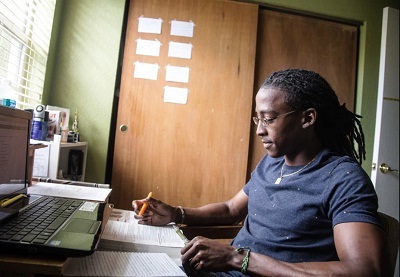DISCLAIMER
The information and materials accessed through or made available for use on any of our Sites, including, any information about diseases, conditions, treatments, or medicines, are for informational purposes only. The Content is not intended to be and is not a substitute for professional medical advice, diagnosis, or treatment, and your participation on our Sites does not create a healthcare professional-patient relationship. You should consult a doctor or other qualified health care professional regarding any questions you have about your health or before making any decisions related to your health or wellness. Call your doctor or 911 immediately if you think you may have a medical emergency.compose your message
message sent
email sent successfully
Trusted Resources: News & Events
Latest announcements and gatherings
Our healthcare system abandons adult sickle cell patients
When Janoi Burgess was a child, he thought doctor appointments were fun.
“I used to love it because they had a section where you could play games,” said Burgess, who was born with sickle cell anemia, an inherited blood disorder. “They were really nice and friendly.”
But when he turned 21, the South Florida resident could no longer go to his pediatric specialist. Instead, he “bounced around” to various primary-care doctors for adults, none of whom seemed well versed in the details of his condition. When he had a painful sickle cell crisis two years later, his only choice was to go to a hospital emergency department, where, he says, he waited three hours for pain medication.

 +myBinder
+myBinderRelated Content
-
people & placesThe Sickle Cell Transplant Advocacy & Research Alliance (STAR)The Sickle Cell Transplant Advocacy &...
-
people & placesSimon Dyson, PhDSimon Dyson is Professor of Applied Soci...
-
news & eventsSickle cell patients suffer as disparities in care and research persistWhen 9-year-old Jeremy Brown is in pai...
-
people & placesIsaac Odame, MB ChB, MRCP, FRCPath, FRCPCH, FRCPCDr. Isaac Odame is a staff physician and...
-
news & eventsHealthy red blood cells owe their shape to muscle-like structuresRed blood cells are on a wild ride. As t...
-
people & placesMount Sinai HospitalIn addition to dedicated treatment progr...
-
education & researchA novel approach to reducing admissions for children with sickle cell disease in pain crisis through individualizati...BACKGROUND:Vaso-occlusive crisis (VOC) i...
send a message
To improve your experience on this site, we use cookies. This includes cookies essential for the basic functioning of our website, cookies for analytics purposes, and cookies enabling us to personalize site content. By clicking on 'Accept' or any content on this site, you agree that cookies can be placed. You may adjust your browser's cookie settings to suit your preferences. More Information
The cookie settings on this website are set to "allow cookies" to give you the best browsing experience possible. If you continue to use this website without changing your cookie settings or you click "Accept" below then you are consenting to this.
Support for this site is provided by

This platform is made possible through a partnership with the Sickle Cell Disease Association of America, Inc. (SCDAA) and its member organizations. SCDAA's mission is to advocate for people affected by sickle cell conditions and empower community-based organizations to maximize quality of life and raise public consciousness while advancing the search for a universal cure.




